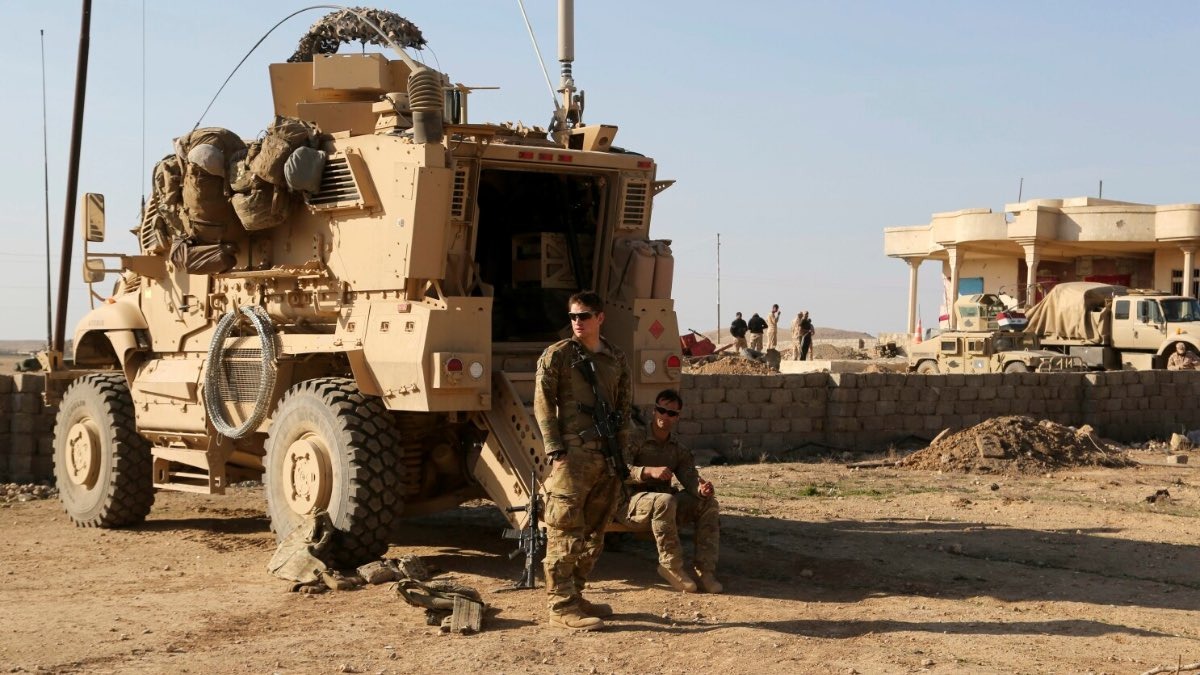📍 Mogadishu, February 1, 2025 – The U.S. military has carried out a series of precision airstrikes targeting Islamic State (IS) operatives in Somalia, in an operation aimed at weakening the extremist group’s influence in the region. This military action comes as part of the U.S.’s broader effort to combat the growing threat of terrorism and extremist groups in East Africa.
Details of the Airstrikes
🔹 The airstrikes, which were executed by U.S. Africa Command (AFRICOM), targeted key Islamic State figures operating in Somalia’s northeastern regions. The attack specifically aimed at high-ranking members of the ISIS-Somalia branch, a growing faction of the global Islamic State terrorist group.
🔹 The strike took place in Somalia’s Puntland region, a known stronghold for Islamic State operatives who have been attempting to expand their influence, particularly through recruitment and terror attacks.
Context of Islamic State’s Presence in Somalia
🔴 The Islamic State has been attempting to gain a foothold in Somalia for several years, competing for dominance with Al-Shabaab, the more prominent terrorist group that has long held control over large swathes of the country. While Al-Shabaab remains the primary threat, ISIS-Somalia has increased its operations in recent months, targeting local security forces, civilians, and military personnel.
The Growing Threat
- ISIS-Somalia is believed to have gained traction by exploiting the instability and lack of government control in some regions of the country.
- Recruitment has been a significant focus for the Islamic State in Somalia, with local tribesmen, especially from disenfranchised communities, being recruited into their ranks.
- The group has also been linked to numerous attacks, including ambushes on military convoys and suicide bombings, further exacerbating the security challenges faced by the Somali government.
U.S. Military Strategy in the Horn of Africa
🔹 The United States has long been involved in the Horn of Africa region as part of its counterterrorism operations, with a focus on targeting Islamist militant groups such as Al-Shabaab and ISIS. The U.S. military’s involvement in Somalia primarily consists of airstrikes, drone operations, and advisory support to Somali security forces.
🔹 These airstrikes are part of a broader U.S. strategy to degrade the operational capabilities of terrorist groups in Somalia, which poses a threat to regional and global security. U.S. officials have maintained that these operations are critical for stability in the region and to prevent the expansion of violent extremist organizations.
Somali Government’s Response and Collaboration
🔹 The Somali government has consistently supported U.S. military operations aimed at disrupting terrorist activities within its borders. In a statement issued after the airstrikes, the Somali government commended the operation, emphasizing its commitment to strengthening security forces and eliminating the extremist presence from the country.
🔹 Somali President Hassan Sheikh Mohamud remarked that the cooperation with U.S. forces would continue in efforts to safeguard the sovereignty of Somalia and protect its citizens from terrorist violence.
Somali Security Forces in Action
- Somali forces, including the Somali National Army (SNA) and regional militias, have been stepping up efforts to push back ISIS and Al-Shabaab militants.
- However, U.S. air support is often seen as a crucial component, especially when dealing with heavily fortified insurgent positions that are beyond the reach of ground troops.
Broader Implications for the Region
🔹 Airstrikes on ISIS operatives highlight the ongoing conflict in the Horn of Africa, where multiple terrorist factions are vying for control.
- The U.S. military’s continued involvement in Somalia signals the strategic importance of the region, which sits at the crossroads of East Africa, with critical shipping lanes nearby and proximity to the Middle East.
🔹 Furthermore, these operations underscore the persistent threat of terrorism in the region, as both local and international forces struggle to contain extremist violence and foster long-term peace.
International Community’s Role in Counterterrorism
🌍 The international community has been increasingly concerned about the spread of extremist groups like ISIS and Al-Shabaab across Africa. While the African Union Mission in Somalia (AMISOM), supported by the U.S., has made strides in stabilizing parts of the country, experts warn that sustained international collaboration is needed to ensure lasting success.
🔹 International partners, such as EU nations, African Union forces, and U.N. agencies, have worked alongside Somali authorities to strengthen counterterrorism capacities, improve intelligence sharing, and disrupt militant supply chains.
Conclusion
The U.S. airstrikes in Somalia mark another chapter in the ongoing battle against extremism in the region. While ISIS-Somalia remains a relatively small faction compared to its counterparts like Al-Shabaab, its growing influence is a reminder of the persistent threat that terrorism poses to not only Somalia but also East Africa and the broader global community.
The U.S. military’s role, particularly through precision airstrikes, continues to be vital in combating these groups. However, cooperation with Somali forces, as well as international support, remains essential to achieving long-term peace and security in the region.





